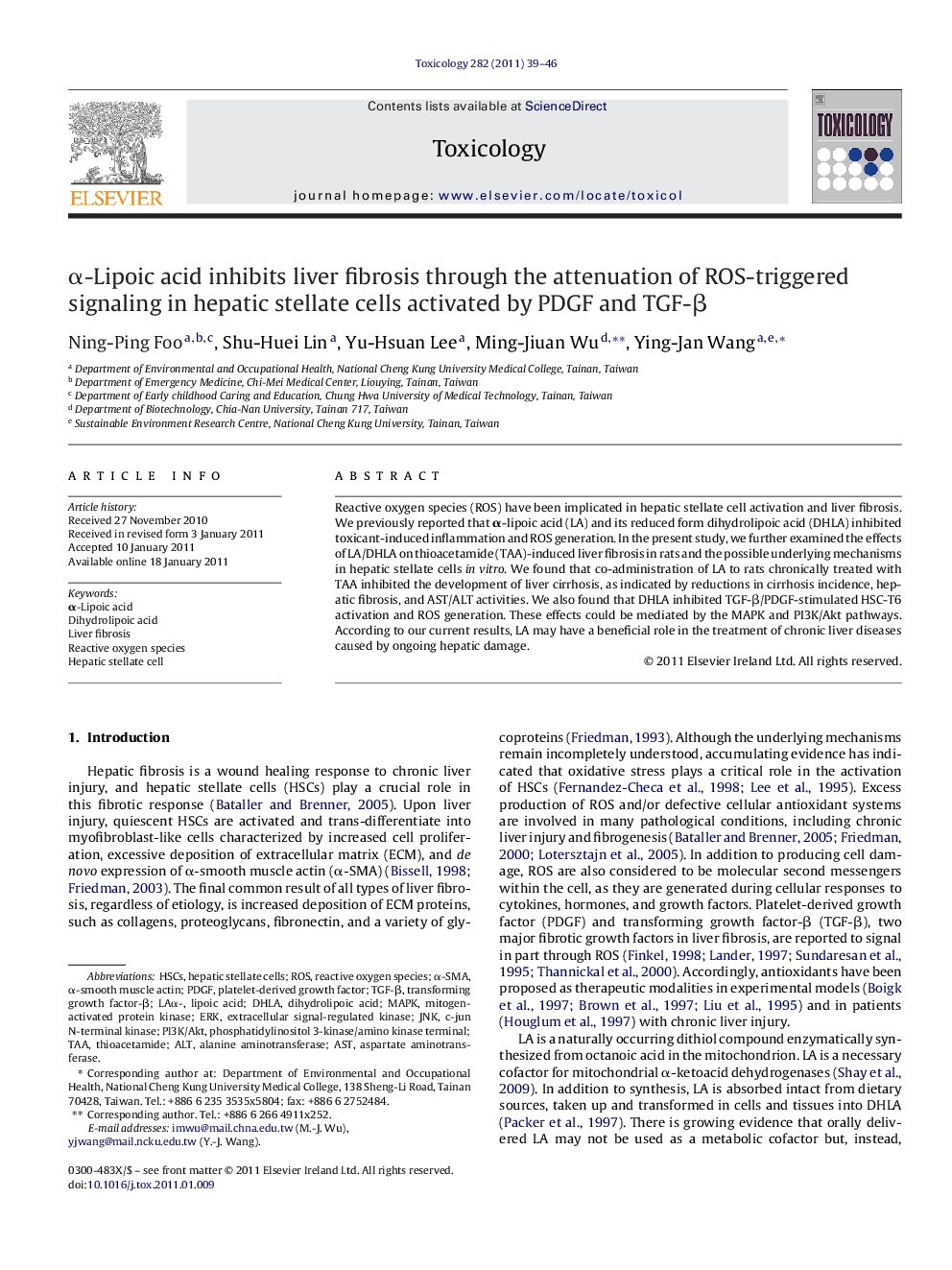| Article ID | Journal | Published Year | Pages | File Type |
|---|---|---|---|---|
| 2596137 | Toxicology | 2011 | 8 Pages |
Reactive oxygen species (ROS) have been implicated in hepatic stellate cell activation and liver fibrosis. We previously reported that α-lipoic acid (LA) and its reduced form dihydrolipoic acid (DHLA) inhibited toxicant-induced inflammation and ROS generation. In the present study, we further examined the effects of LA/DHLA on thioacetamide (TAA)-induced liver fibrosis in rats and the possible underlying mechanisms in hepatic stellate cells in vitro. We found that co-administration of LA to rats chronically treated with TAA inhibited the development of liver cirrhosis, as indicated by reductions in cirrhosis incidence, hepatic fibrosis, and AST/ALT activities. We also found that DHLA inhibited TGF-β/PDGF-stimulated HSC-T6 activation and ROS generation. These effects could be mediated by the MAPK and PI3K/Akt pathways. According to our current results, LA may have a beneficial role in the treatment of chronic liver diseases caused by ongoing hepatic damage.
